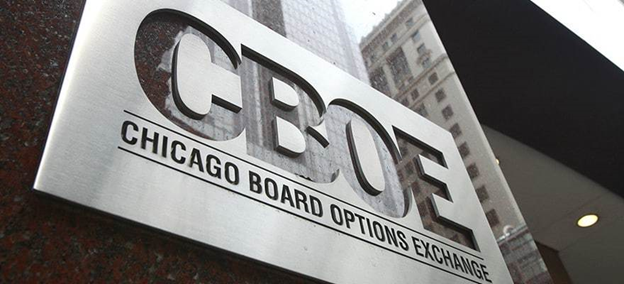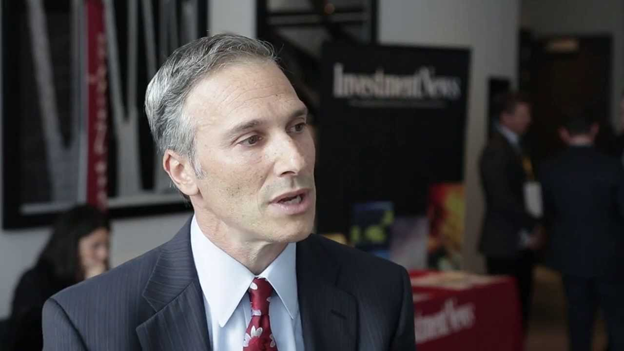Will the Securities Exchange Commission (SEC) approve a Bitcoin ETF in 2019?
For any investor in the cryptocurrency world at the moment, one major decision awaits in 2019 that may well have a significant impact in the field’s future. The question of Bitcoin ETF’s has long been discussed in the media and across courts around the world, especially in the U.S.
We discuss Bitcoin ETFs in this article analyzing the assets in detail, its importance, challenges and potential future in the United States securities market. The article will further explain if Bitcoin ETFs will get approval from the Securities Exchange Commission (SEC) to gain a listing on exchanges in 2019.
What is a Bitcoin ETF?
Exchange traded funds are investment instruments that allow an investor to invest in a risky market without owning the actual stock, commodity, gold or cryptocurrency. Bitcoin ETFs work the same way as the ETFs track the Bitcoin price as the underlying index. ETFs allow investors to mitigate risk while still having the exposure in risky markets helping the averse investors get a piece of the action.

Image: Blackrock
Types of Bitcoin ETFs
Bitcoin ETFs are basically in two major categories; the ‘physical’ ETFs and ‘derivative’ ETFs. The physical ETFs are those that track the actual price of physical Bitcoin. An example is the VanEck/SolidX ETFs that are supported by the Chicago Board Options Exchange (CBOE).
The derivative Bitcoin ETFs are based on trading BTC futures, options, swaps, and other money market instruments. The ETF tracks the price of the investment instrument instead of the actual price of BTC.
The Securities Exchange Commission on Regulation of Bitcoin ETFs in the U.S.
The SEC has had its plate full regarding the number of companies filing to launch Bitcoin ETFs. SEC is responsible for regulating securities in the US market hence the decision on ETFs lies with it.
The VanEck/SolidX Bitcoin ETFs

Chicago Board Options Exchange (CBOE) supports the proposed VanEck/SolidX Bitcoin ETFs
In March 2016, VanEck, the New York based investment management firm, and SolidX, a solid provider of blockchain services and software, filed for approval of its VanEck/SolidX Bitcoin ETFs. The SEC responded to the file in March 2017 rejecting the application on basis of price manipulation on the market of Bitcoin.
As stated before, VanEck/SolidX Bitcoin ETF’s differ from the rest of the ETFs as they track the actual price of Bitcoin. These kinds of Bitcoin ETFs focus on institutional investment rather than retail hence pricing a share at 25 Bitcoins ($100,000).
The two companies filed a second application with SEC for a physically backed Bitcoin ETF in June 2018. The ETF will be listed on the CBOE’s BZX Equities exchange. The SEC is yet to offer a ruling on the application after it suspended the ruling in July to February 27th, 2019 when the verdict will be given.
Proshares,Graniteshares and Direxion Bitcoin ETFs
In a separate ruling on Bitcoin ETFs on August 22nd, the SEC rejected the proposed Proshares Bitcoin ETFs along with 9 more proposed ETFs by Graniteshares and Direxion. Proshares filed for the approval of its Bitcoin ETFs and the Proshares Short Bitcoin ETFs in September 2017 initially. The filing stated the ETFs will track the Bitcoin futures market on CBOE or CME futures markets instead of the underlying price of BTC.

Steven Cohen, Managing Director of Proshares
In a proposal, Proshares Trust had asked the SEC to include to its file the Proshares Bitcoin futures/Equity strategy ETF and the Proshares Bitcoin/Blockchain strategy ETF. The proposal was later withdrawn by the Proshares Trust later in December as they waited on the growth of the Bitcoin futures market.
“There can be no assurance that an active trading market for bitcoin futures contracts will develop or be maintained”- Steven Cohen, Proshares filling to SEC on withdrawing ETFs.
The SEC rejected the applications citing the wild volatility of Bitcoin prices as well as manipulation of prices of futures contracts as the reason behind its decision to reject the nine proposed ETFs.
A further decision awaits the futures-related ETFs in January 2019.
The Winklevoss twins Bitcoin ETFs
Cameron and Tyler Winklevoss, creators of Gemini, are trying to get SEC to approve the listing of their Bitcoin futures ETFs. In June last year, the SEC rejected Bats BZX Exchange from listing Bitcoin and cryptocurrency related products. The move by the SEC was quickly disapproved by Bats Exchange and they filed a petition to see the decision overturned.
SEC’s response to Bats showed promise to future decisions of the agency as they strongly confirmed they were not against the field of crypto and blockchain technologies but Bats BZX Exchange failure to comply with the Exchange Act and Commission’s rule of practice.

Winklevoss twins, founders of Gemini exchange: Bitcoin ETFs were rejected by the SEC (Image: BEG)
The Winklevoss case shed light on the mishaps the companies offering the Bitcoin ETFs have to overcome in order to gain approval of listing. Furthermore, a solid future market on Bitcoin will offer more weight on the proponents’ side for SEC’s approval.
Factors that will drive SEC to accept Bitcoin ETFs in 2019
The cases of rejected proposals by the SEC all point to similar reasoning; trade surveillance and manipulation of the market. In his talk at the annual Consensus Invest Conference, SEC Chairman Jay Clayton, touched on the Bitcoin ETFs saga saying,
“[The SEC] needs to see key safeguards, the foremost of which are effective market surveillance to monitor and address manipulation and custody solutions.”
The problems offered in the 90-page Winklevoss also point to the lack of trade surveillance systems and massive manipulation through pump and dump schemes as a reason for the rejection by the SEC.
The solution: Trade surveillance
Trade surveillance, briefly, is a set of tools put in place to monitor trade activity and alert market participants whenever suspicions arise for manipulative or abusive activity.
The cryptocurrency market offers a complex structure of conducting transactions which are both secure and decentralized through blockchains. The complexity, however, causes the system to be more vulnerable to manipulation by certain investors. The blockchains with a proof of work consensus mechanism, like Bitcoin, can suffer from a 51% hack on the network which can lead to massive manipulation of the market.
With trade surveillance systems termed as the answer to keep the cryptocurrency industry in check, why haven’t these companies implemented these systems?
Well, several companies wanting to list Bitcoin ETFs have partnered with external trade surveillance partners and still have had their applications rejected. According to the SEC, the traditional systems of trade surveillance do not apply to Bitcoin and other cryptocurrencies.
This begs the question, what will drive SEC to accept the listing of Bitcoin ETFs on exchanges?
Crypto-related trade surveillance
The complexity of trade surveillance on Bitcoin-related ETFs requires a new form of trade surveillance to ensure the funds are protected from manipulation. The new world of digital, blockchain-based financial markets requires a new class of surveillance infrastructure that’s blockchain-native and tailored for digital assets.
Standardization of the rules across the market: As is with traditional markets that follow a standardized set of rules, digital assets will need to find a set of rules to govern the trades. However, as blockchains were built to withdraw centralized systems, surveillance will be hard to carry out in a decentralized system.
Bitcoin markets run 24/7: The surveillance in Bitcoin markets will need to run continuously as the markets do not close as traditional markets do. This will have an effect on how trade surveillance is set to report cases of manipulation in real time.
The fractional nature of digital assets: One major factor that has stalled the use of traditional methods of surveillance from working is the fractional nature of Bitcoin. Exchanges have had a lot of trouble using traditional trade surveillance on their systems due to the small fractions (18 decimals in some cases). These cause the manipulation analysts to offload the data from the traditional systems, reprocess it and re-upload to check for any interference with the market.
Stability in Bitcoin prices
The risky nature of Bitcoin as an investment asset is a cause for the rejection of Bitcoin ETF’s by the SEC. The wild volatility experienced in the industry will need to be eliminated to push through the approval according to a statement from the SEC. One of the ways to bring stability to the prices is through mass trading on Bitcoin futures.
As the futures markets grow, the price of Bitcoin will be limited to a cap on the cap floor and ceiling prices. This brings about stability to a market that sought from US$1,000 at the start of 2017 to close to US$20,000 at the end of the year only to drop to less than US$4,000 today.
Importance of ETFs on the Bitcoin market
The sheer will and determination by these companies to list Bitcoin ETFs should ring a bell to investors. Bitcoin ETFs are important to Bitcoin’s market! In this section, we dwell further on the importance of Bitcoin ETF’s coming to life in the U.S exchanges.
As earlier explained, ETFs help risk averse investors to take a chance on volatile assets without owning the asset. Listing ETFs will enable both institutional investors and retailers to take part in predicting future prices of Bitcoin in a legitimate and regulated environment.
Conclusion
Cryptocurrency investors are holding their breath awaiting the decisions to be made by the SEC on the Bitcoin ETFs in early 2019. As much as the Bitcoin ETFs will benefit the market if approved, investors should not expect a rally to ensure as seen in late 2017.
In case the Bitcoin ETFs are rejected, they will need to go back to the drawing board and come up with better systems to regulate Bitcoin’s trading. After all, such cases are known to take years before a conclusive verdict is reached by the SEC.
Want to know more about it, join us on our Discord and Telegram channels and get into the discussion, or join our 8000 member community on our ICO DOG Investment Platform:


